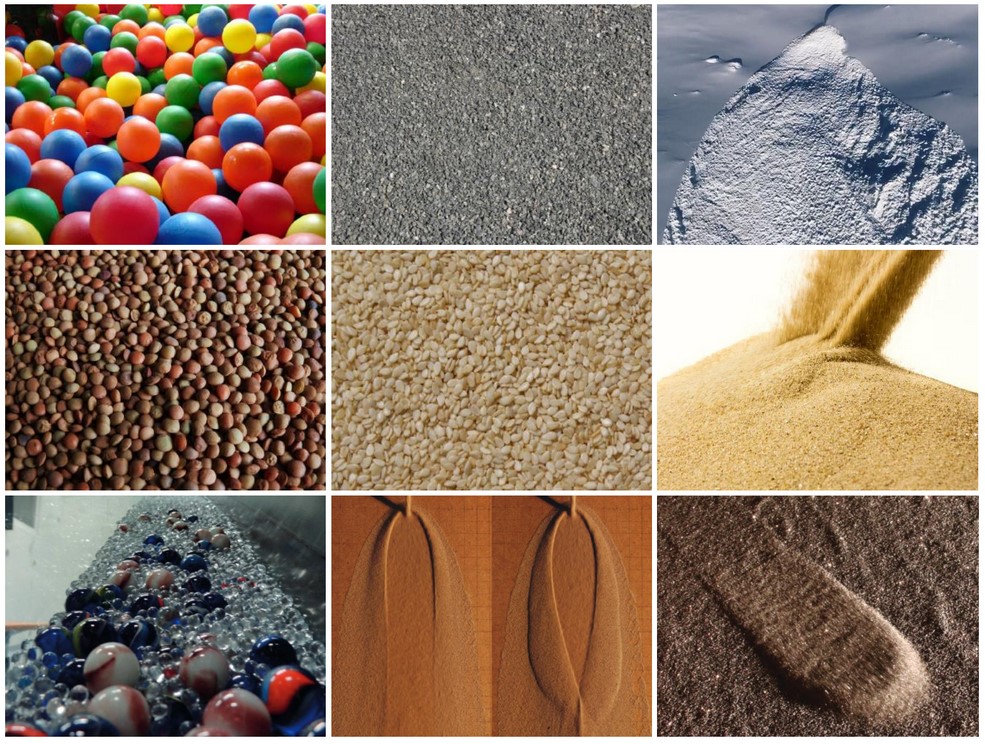Granular Mechanics
Teachers
Prof. Dr. Johan Gaume
Guest lecturers
Dr. Michael Kyburz
Dr. Lars Blatny
Dr. Hugo Rousseau
Assistants
Camille Huitorel
Mikkel Metzsch Jensen
Philipp Friess
Description
This course aims to provide a basic understanding of the mechanics and rheology of granular matter. It includes fundamental concepts as well as recent progress in research with main focus on related engineering and natural hazards applications. Small experiments are performed in class to illustrate important processes and state-of-the-art numerical modeling tools are introduced and used.

Objectives
Granular materials have the ability to sustain stresses like a solid of flow like a fluid depending on the applied solicitation and boundary conditions. This course targets civil, geotechnical and mechanical engineering students, who are interested in discovering the fascinating and sometimes surprising world of granular media, the second most used material in industry and in learning novel modeling approaches. After this class, the students should know how to describe inter-particle interactions at the grain scale, the statics of granular materials, the transition towards fluid states through classical frictional plastic laws and the rheology of granular flows. Furthermore, the students should know the basics of the Discrete Element Method (DEM), its advantages and limitations and should be able to use commercial software for different types of application.
Content
This course covers grain-scale interactions, statics and rheology of granular materials based on a mix between classical lectures, on-board developments, presentation of small experiments, analytical and numerical exercises. We present the domains of application of granular mechanics through examples taken from the industry or research. In addition, the Discrete Element Method (DEM) together with state-of-the-art contact models will be presented and used to simulate standard tests such as the granular column collapse, shear flows but also more complex industrial or geophysical problems. Calibration of model parameters based on laboratory experiments will be discussed. The course will not cover aspects related to granular gasses and kinetic theory.
All course material is available for enrolled students on Moodle.